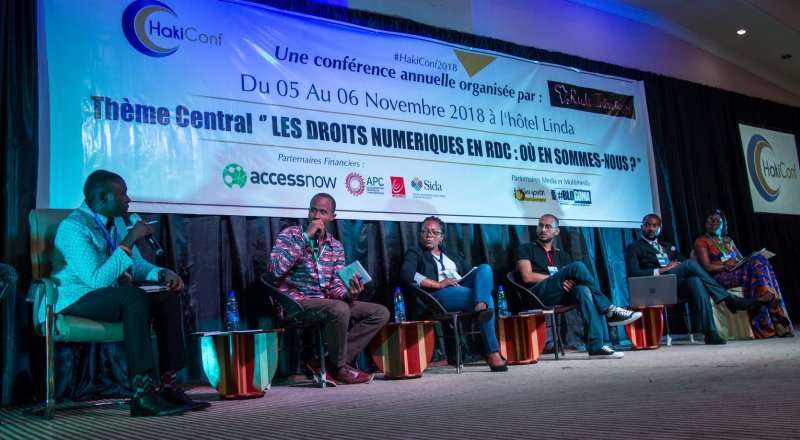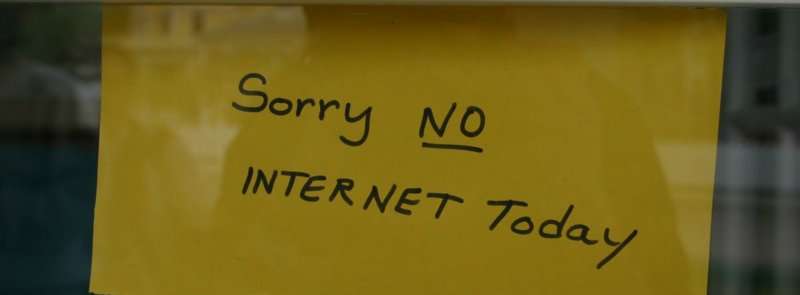Statement |
Civil society representatives, lawyers, and journalists from East and Central Africa have called upon their governments to develop policies that protect citizens’ digital rights and promote the use of the internet for free expression and for pursuing economic and education opportunities. The call was made amidst growing concerns that an increasing number of African countries are taking measures that restrict rather than promote the use of the internet. These measures include introduction of taxes that hinder access and use of Information and Communications Technology (ICT) and laws that hamper freedom of expression through ICT.
The call was made following a workshop on ICT Policy and Advocacy for actors from East and Central Africa, which took place in Goma, Democratic Republic of Congo. Hosted by the Collaboration on International ICT Policy for East and Southern Africa (CIPESA) and Rudi International on November 4–6, 2018, alongside the Haki Conference, the workshop drew 29 participants from Burundi, Kenya, DR Congo, Rwanda and Uganda.
Participants noted that the region faces similar challenges such as a lack of data protection laws, mass data collection efforts by governments and business entities, rising self-censorship by individuals and groups who fear reprisals for their online activities, gender-based cyber violence, and high perceptions of undue government surveillance on citizens’ communications. Moreover, some countries in the region have registered blockage of critical websites at the instigation of state authorities, while intimidation and harassment of independent bloggers and activists remain rampant, which affects freedom of expression and the free flow of information online.
In particular, participants urged the Rwanda government to amend its law on interception of communications to strictly define officers who can apply for warrants for monitoring of communications, to strengthen judicial oversight over interceptions activity, and to strictly guard the possibility for mass electronic surveillance.
Burundi was urged to enact a strong access to information law that requires state agencies to pro-actively release information, protects whistleblowers, and effectively advances citizens’ access to information online and offline.
Meanwhile, Burundi, DR Congo, Rwanda and Uganda, were urged to speed up the enactment of comprehensive privacy and data protection laws that strongly protect the integrity of users’ data and severely punish those who misuse such data. None of the countries in the region has a data protection law, although all require mandatory registration of SIM cards and are undertaking various exercises to collect massive amounts of citizens’ data.
In DR Congo, the lack of up-to-date laws to govern the telecommunications sector was noted with concern. Participants called on the National Assembly to expedite the enactment of the bill to update the outdated 2002 law on telecommunications, which is currently before the legislature. However, the parliament should widely consult civil society and the private sector and meaningfully integrate their inputs into the law to be adopted. Moreover, the DR Congo government should enact other ICT-related laws, such as on cyber crime and data protection; and take decisive measures to increase access to affordable fibre around the country, particularly in rural and under-served areas, and meaningfully invest Universal Service Funds in improving broadband access.
The region has this year seen the introduction of online content regulations that undermine the use of ICT. Tanzania and Uganda have started licensing online content producers at a fee, while in July, Uganda set a precedent by introducing taxes to access social media sites including Facebook, Whatsapp and Twitter. The DR Congo, which has ordered various internet disruptions in the last two years, also issued regulations in 2018 that require online publishers to register. .
Indeed, in the wake of these developments, participants called on states to develop laws that robustly stimulate the affordability and usage of the internet and related technologies as opposed to curtailing access to digital communications and stifling freed expression and access to information. The participants also shared their views at DR Congo’s first digital rights conference that concluded with the issuance of the Goma Declaration (French). The training in DR Congo was part of the CIPESA-run OpenNet Africa project (www.opennetafrica.org) which is working to grow the network of individuals and groups that work on advancing internet freedom and building their capacity to engage in digital rights advocacy.
Disruptions To Digital Communications Persist In The Democratic Republic Of Congo
By Edrine Wanyama |
Internet access and Short Message Services (SMS) were interrupted in the Democratic Republic of Congo (DR Congo) on January 20, 2018 ahead of a peaceful protest march organised by the Catholic Church to compel President Joseph Kabila to step down following the expiry of his final term in office. The country remains caught in a cycle of instability since the postponement of the November 2016 elections to December 2017, and then to April 2018.
The first interruption of digital communications in the vast central African nation occurred in December 2011 in the aftermath of general elections, before the announcement of the election results. The shutdown affected SMS, and lasted 25 days.
In the seven years since then, DR Congo has experienced at least five communication disruptions amidst growing concerns about surveillance of the digital communications of opposition leaders, journalists, and activists.
Affronts to internet access hurt human rights, and undermine political stability and economic growth. According to the new framework for calculating the economic impact of internet shutdowns, DR Congo loses at least USD 1,936,911 per day of an internet disruption.
The regular communication disruptions bring into focus the role of intermediaries in advancing internet freedom in the country. Specifically, telecom companies and other Internet Service Providers (ISPs) are being challenged to dissociate themselves from censorship, by declining to effect the government’s orders to cut off communications. Such a move would arguably be in accordance with the UN Guiding Principles on Business and Human Rights which require businesses to proactively address all adverse human rights impacts directly linked to their operations, products or services. However, many telecommunications services providers fear reprimand and termination of their licences for failure to comply with directives from the state to interfere or block digital communications.
Government directives to shut down the internet or interrupt communications are usually issued under the guise of “national security” or “public order”. In a letter ordering network disruptions in August 2017, an official of the national communications regulatory body, the Autorité de Regulation des Postes et Télécommunications du Congo (ARPTC), instructed service providers to take preventative measures to reduce the capacity to transmit “abusive messages.”
Internet penetration in DR Congo remains low at 4.2%, supported by a 55.7% mobile penetration. To-date, there are two primary laws governing the telecommunications sector, both of which were passed in 2002: the Framework Law 013/2002 on Telecommunications, and the Law 14/2002 on the Regulations – the law that established the national regulator. However, rather than advance internet access and usage, these laws have often been used against the media and critics of the state. Meanwhile, there are limited meaningful avenues for citizens to provide inputs to proposed new laws related to the telecommunications industry.
President Kabila’s government should boldly work to stop the abuse of rights which the country’s 2005 constitution guarantees . Abuse of free expression and access to information has continued in Congo despite the recognition of access to the internet as a human right by African and International Human Rights instruments. The UN Secretary General has previously called and continues to call upon the Congolese government to uphold her citizens’ freedoms to speech and peaceful assembly.
It is thus imperative that Congo government authorities desist from interrupting digital communications and guarantee citizens’ access to the internet and to the full enjoyment of their digital rights. Further, the Congo government should recognise the relationship between access to the internet and citizens’ livelihoods and work to grow the number of its citizens that meaningfully access and use digital tools and services.


